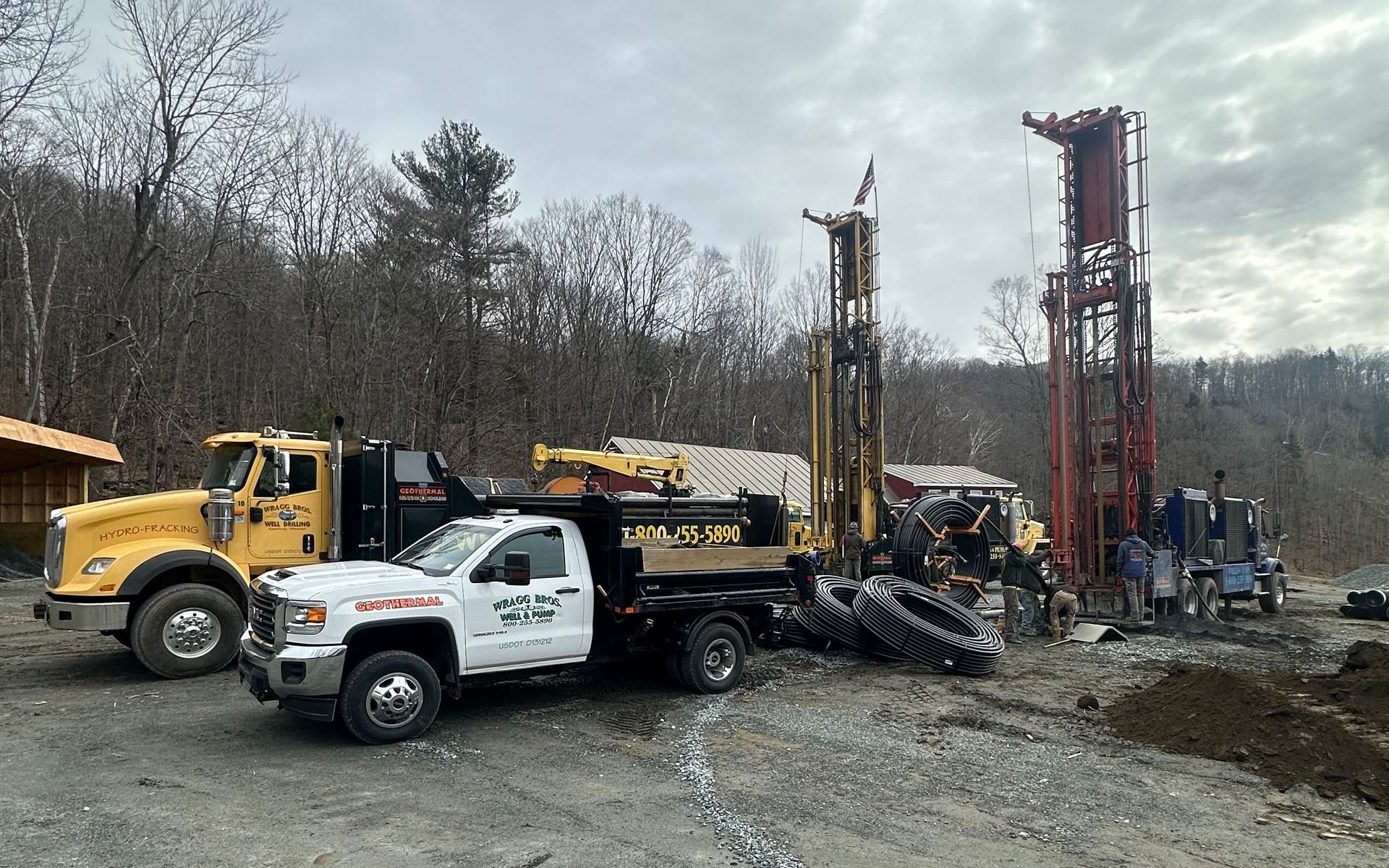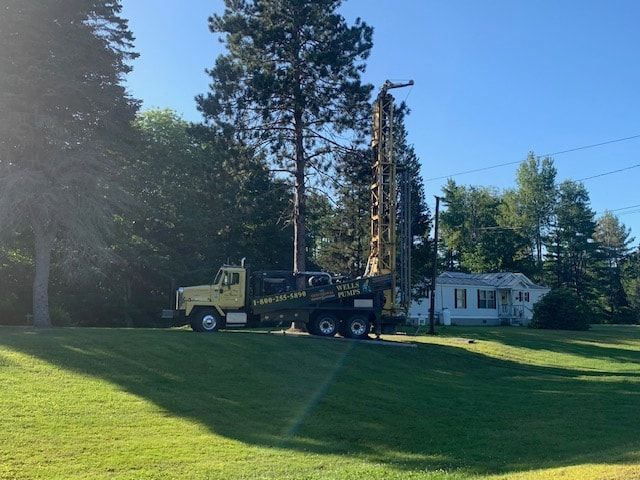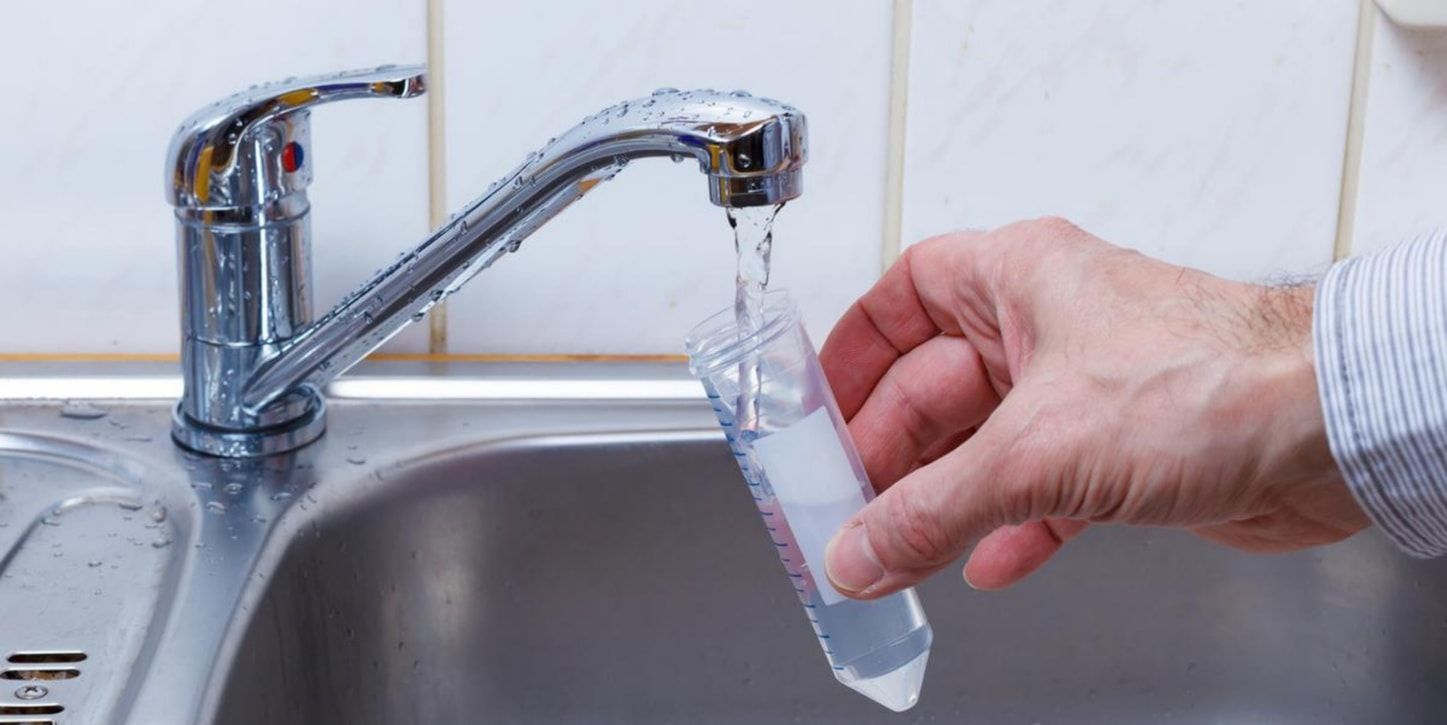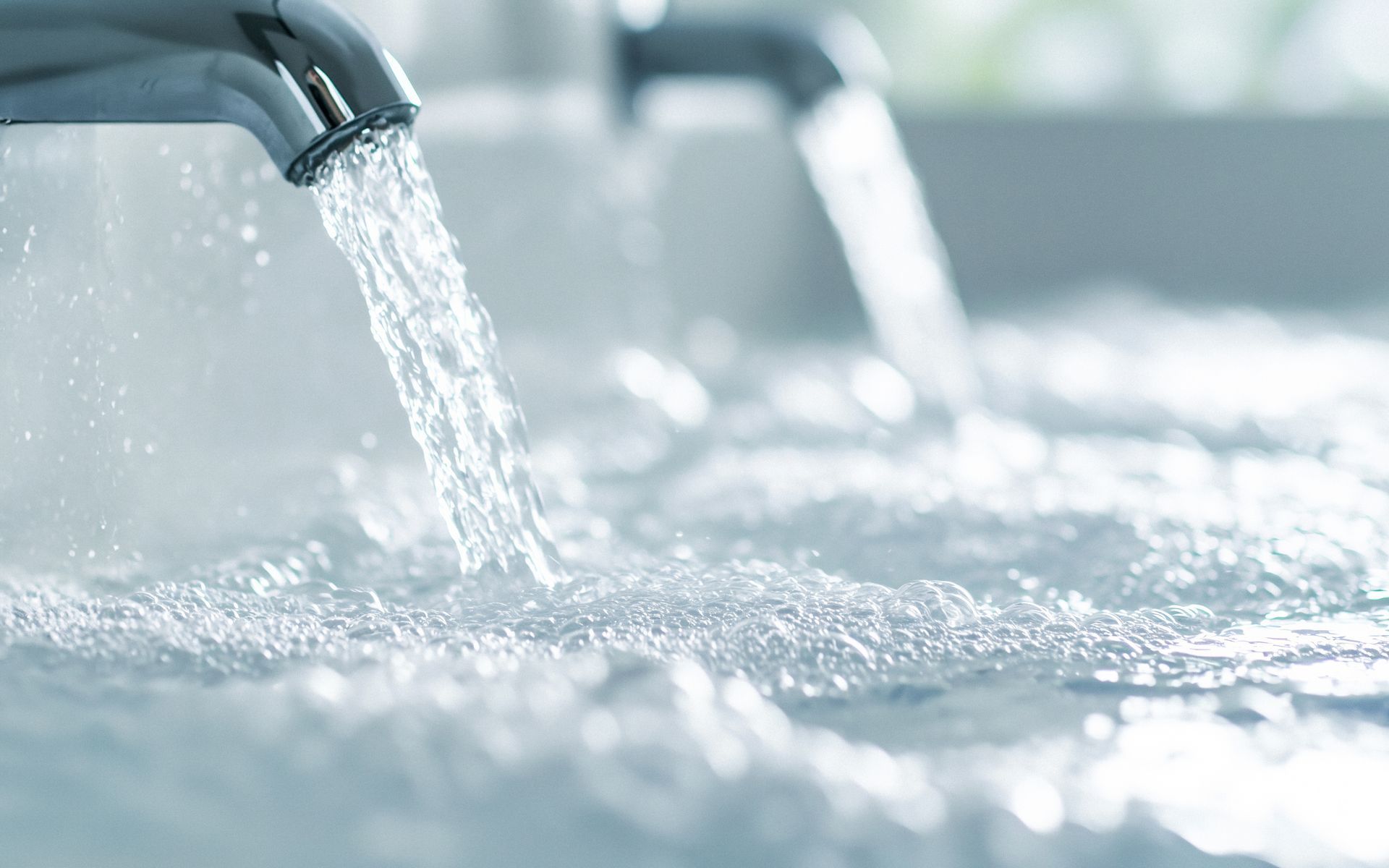Understanding Drilled Well Prices: What to Expect in 2025
Wondering about drilled well prices? On average, drilling a well costs $5,500, but it can range from $3,000 to over $24,500. This article breaks down these costs and the factors that influence them.
Key Takeaways
- The average cost to drill a well in 2025 is around $5,500, but can vary significantly based on depth and complexity, ranging from $3,000 to over $24,500.
- Costs for drilled wells differ per foot: residential wells average $25 to $65 per foot, making understanding these rates crucial for budgeting.
- Key factors influencing well drilling costs include geographic location, soil type, distance from the house, and permit fees, all of which require careful consideration when planning a well installation.
Average Cost of Drilling a Well
As New Hampshire and Vermont’s trusted experts at Wragg Brothers Well Drilling, we understand that you’re eager to know what to budget for a new water well in 2025. On average, drilling a well costs around $5,500, but depending on the drilling depth and complexity, prices can range from $3,000 to over $24,500. Shallow residential wells typically fall between $1,800 and $3,000, while deeper installations can exceed $10,000 to $20,000.
These costs have doubled or tripled over the past decade due to economic shifts, making it more important than ever to work with a knowledgeable team who can deliver accurate estimates and reliable service. Whether you’re looking at a shallow well or a deep well, understanding the average depth provides a solid foundation for planning your drilling project in shallow water.
Cost Per Foot for Drilled Wells

The cost per foot for drilled wells varies widely, primarily depending on the type of well being drilled:
- Residential wells: $25 to $65 per foot
- Irrigation wells: $50 to $100 per foot
- Geothermal wells: $5 to $40 per foot
- Shallow wells: $5 to $15 per foot
These per-foot costs can quickly add up, especially for deeper wells. For instance, a 200-foot residential well could cost between $5,000 and $13,000 just for the drilling process. Understanding these costs per foot helps you gauge the overall well drilling cost and better plan your budget.
Residential Well Drilling Costs
Homeowners typically spend $3,000 to $15,000 for a complete residential well system. Key cost details include:
- Drilling cost alone ranges from $15 to $25 per foot.
- Full installations average $25 to $65 per foot.
- Deeper wells (200 to 400 feet) are significantly more expensive due to additional materials, labor, and equipment required.
Investing in a complete water well system ensures you have a reliable water system for years to come. The upfront costs may seem high, but the long-term benefits of having your private water supply often outweigh the initial expenses.
Key Factors Influencing Well Drilling Costs
The total expenses related to well drilling can vary widely due to several elements such as location, soil conditions, and well depth, along with other factors. Understanding these key factors helps you anticipate potential costs and make informed decisions.
Let’s delve into how geographic location, soil type, and the distance from your house can impact your well drilling costs.
Geographic Location
Local geology, soil type, and groundwater levels play a significant role in the drilling difficulty and, consequently, the cost. Labor costs, permits, and inspections also vary regionally, affecting the overall well drilling cost. In rural areas, drilling costs may be lower due to easier access to resources and fewer regulations.
Conversely, urban locations often incur higher well drilling fees due to additional permits and the need for specialized drilling methods. The climate and water availability in a specific area can also significantly affect the cost of well drilling.
Soil Type
The type of soil in your area can greatly influence drilling costs. Soft soils like sand or clay allow for quicker and easier drilling, leading to lower installation costs. In contrast, drilling through rocky or compact soils requires specialized equipment and more time, which increases overall costs.
Different soil types require varied drilling techniques, impacting the overall cost of the well. Knowing your soil type can help you anticipate additional expenses and choose the appropriate drilling method for your project.
Distance from House
The proximity of the well to your house significantly impacts overall costs. The closer the well, the less you’ll pay for water and electrical line installation, typically $30 to $60 per foot. Greater distances may require booster pumps or storage tanks to ensure adequate water flow.
Longer minimum distances from the home lead to higher costs due to increased materials and labor for piping and electrical connections. If a well pump is situated further from the house, additional components like booster pumps may be necessary to maintain water pressure.
Cost Breakdown of a Complete Water Well System

The cost for a complete water well system typically ranges from $25 to $65 per foot. This price may vary based on specific factors and locations. This includes various components such as well casing, which can cost $5 to $130 per foot depending on the material used. Well pumps range from $300 to $2,500, with installation costs adding another $400 to $2,500.
Pressure or Storage Tank are another essential component, costing between $200 and $1,100. Electrical components and plumbing work can cost $50 to $150 per foot, with labor adding an additional $150 to $550. Pressure tanks are vital for maintaining system efficiency.
Understanding these costs helps you plan for a complete system that meets your needs.
Permit Fees
Permitting is critical for legal compliance and can range from $200 to $3,000 depending on local requirements. These additional costs ensure that all site plans, well types, and locations meet state and local regulations, which is essential for a smooth drilling process.
Our team at Wragg Brothers Well Drilling ensures all necessary permits are secured, making the process hassle-free for you. By understanding permit fees, you can better prepare for these additional costs and avoid any legal complications down the line.
Water Testing and Maintenance

Costs associated with water well maintenance include:
- Post-drilling water testing, essential for safety, costing $100 to $650.
- Regular maintenance, ranging from $100 to $500 annually, which ensures your system remains efficient and prevents costly repairs.
- Electricity to run the pump, typically adding $100 to $400 per year.
Routine water testing and maintenance are crucial for maintaining water quality and extending the lifespan of your complete water well system. Investing in these services can save you money in the long run by preventing major issues before they arise through effective drinking water treatment, flow test procedures, and a purification system.
Comparing Different Types of Wells
Different types of wells come with varying costs and benefits. Artesian wells cost, for example, can range between $5,000 and $15,000 but often save on pumping costs. Shallow wells, which are 25 to 50 feet deep, are more affordable, costing between $1,800 and $3,000.
Deep wells, ranging from 200 to 400 feet, are significantly more expensive, costing between $10,000 and $20,000. Driven wells start around $4,000. Understanding these differences helps you choose the best type of well for your needs and budget.
Tips to Save Money on Well Drilling
There are several ways to save money on well drilling. If you’re handy, taking on simple tasks like trenching or well installation can reduce costs. Bundling services with your contractor can also lead to discounted pricing, especially if you choose an energy efficient pump.
To reduce expenses related to drilling, consider the following strategies:
- Schedule drilling during off-peak times.
- Carefully survey your property for the most cost-effective well location.
- Check for available grants or incentives that can provide financial relief.
Hiring a Professional Well Drilling Company
Choosing an experienced, licensed, and insured contractor like Wragg Brothers Well Drilling is crucial. We provide transparent pricing, detailed contracts, and a comprehensive range of services—from site assessment and drilling to pump installation and water testing. Our deep knowledge of New Hampshire and Vermont’s geology ensures you get a system that meets your household or business needs while staying compliant with local regulations.
Hiring a professional company ensures that your well drilling project is handled efficiently and effectively, reducing the risk of unforeseen issues and additional costs.
Ready to Get Started?
Initiating a well drilling project often begins with a site survey to assess local factors such as proximity to septic system and the use of site preparation tools at the drill site. Projects typically take one to three weeks to complete, depending on local regulations and permitting processes, including the county’s building department.
Professional well drilling companies handle all aspects of the process, including securing necessary permits and using well-maintained equipment, as well as providing essential just the drilling services.
Summary
Summarizing the key points, understanding well drilling costs in 2025 involves considering several factors such as depth, location, and soil type. Working with a professional well drilling company like Wragg Brothers Well Drilling ensures you receive accurate estimates and reliable service.
By following the tips provided, you can save money while ensuring you get a complete water well system that meets your needs. Ready to take the next step? Contact Wragg Brothers Well Drilling today for a consultation.
Frequently Asked Questions
What is the average cost of drilling a well in 2025?
The average cost of drilling a well in 2025 is approximately $5,500, with prices varying from $3,000 to over $24,500 based on factors like depth and complexity.
How much does it cost per foot to drill a residential well?
Drilling a residential well typically costs between $25 and $65 per foot. This price can vary based on factors such as location and well depth.
What factors influence well drilling costs the most?
Well drilling costs are primarily influenced by geographic location, soil type, and distance from the property. Understanding these factors can help you anticipate and manage your drilling expenses effectively.
How much do permit fees typically cost?
Permit fees typically cost between $200 and $3,000, varying based on local requirements. It's advisable to check with your local authorities for specific rates.
How can I save money on well drilling?
To save money on well drilling, consider taking on simple tasks yourself, bundling services, scheduling your drilling during off-peak times, and researching available grants or incentives. These strategies can significantly reduce your overall costs.


